20 Moms Who Still Found Time to Prank Their Partners During Labor

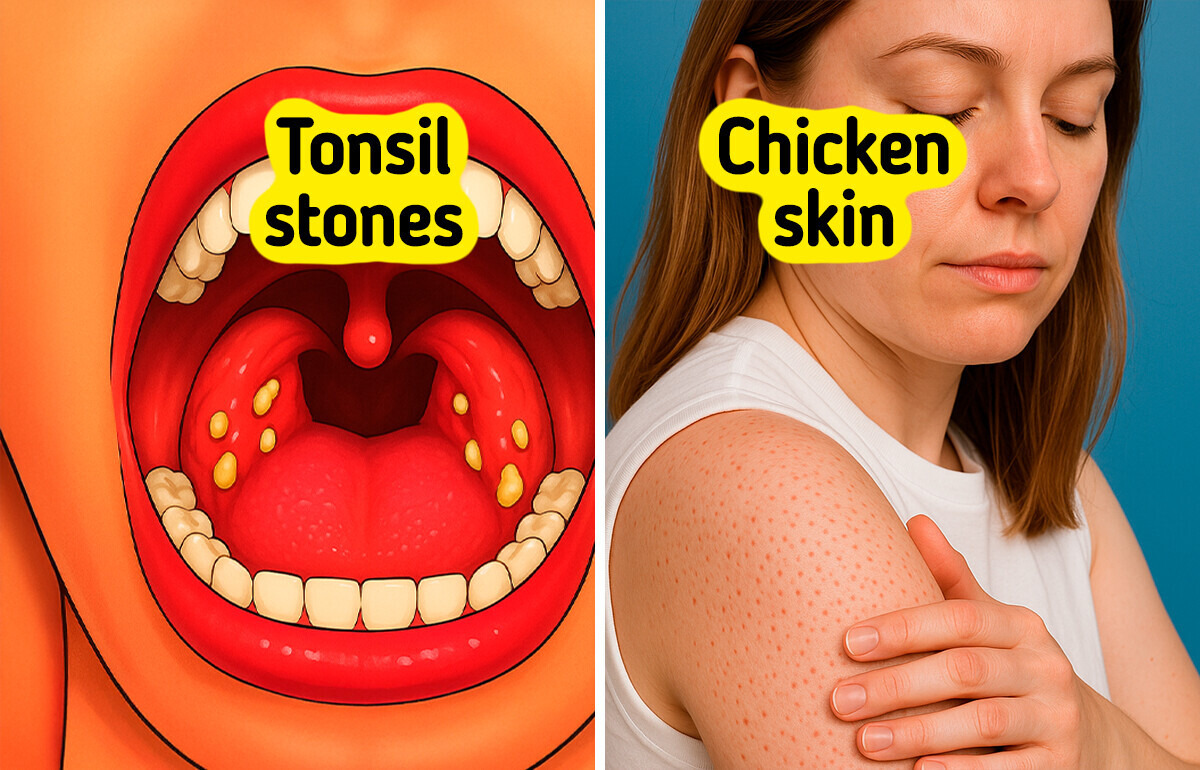
Gluten might appear harmless, but for some individuals, it can silently provoke significant health problems. Often lacking clear warning signs, its impact may remain undetected, potentially causing long-term harm. Recognizing how your body responds to gluten is crucial for safeguarding your overall well-being.
CONTENT IS PROVIDED FOR INFORMATIONAL PURPOSES ONLY AND IS NOT INTENDED AS A SUBSTITUTE OF MEDICAL ADVICE. SEEK GUIDANCE OF YOUR DOCTOR REGARDING YOUR HEALTH AND MEDICAL CONDITIONS.

What it is: Small, rough bumps on the back of the arms, thighs, or buttocks.
Why it happens: Gluten-related damage to the gut can lead to poor absorption of essential fatty acids and vitamin A, contributing to this skin condition.
There are no studies indicating a direct correlation between gluten ingestion and keratosis pilaris. However, it can be caused by vitamin A deficiency or essential fatty acid deficiency, both of which can occur with impaired absorption.
Gluten intolerance — especially in cases like celiac disease — can sometimes cause hair loss, even affecting your eyelashes.
This happens because gluten can damage the small intestine, making it harder for your body to absorb important nutrients like zinc, iron, and biotin. These vitamins and minerals are essential for keeping your hair strong and healthy.
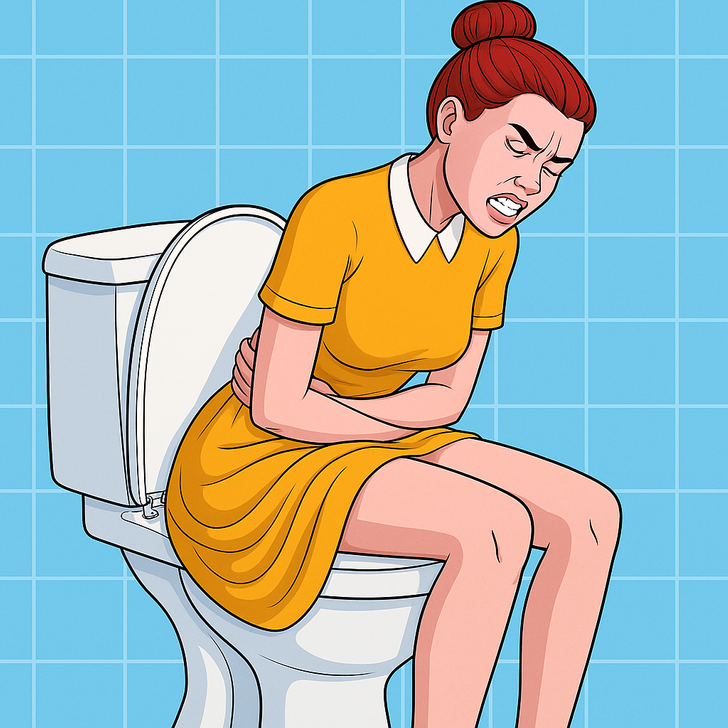
Gluten sensitivity primarily affects the digestive system, causing symptoms such as nausea, bloating, diarrhea, abdominal pain, and sometimes constipation. These symptoms are often mistaken for other conditions, leading to frequent misdiagnoses, particularly as irritable bowel syndrome (IBS), which affects an estimated 10-15% of the global population. For individuals with gluten sensitivity, such misdiagnoses can delay proper treatment, prolong discomfort, and leave their symptoms unresolved.

Gluten intolerance can lead to unexpected weight fluctuations, causing unexplained weight loss or gain. These changes often stem from underlying inflammation and disruptions in metabolic processes. While sudden weight changes can indicate various health issues, they may specifically point to gluten intolerance when paired with symptoms like fatigue, digestive discomfort, and deficiencies in essential vitamins and minerals due to nutrient malabsorption.
Many individuals with autoimmune diseases have a history of gluten intolerance, suggesting a potential link between the two. Celiac disease, a well-recognized autoimmune disorder, occurs when the immune system mistakenly attacks the intestinal lining in response to gluten consumption.
Beyond digestive and systemic complications, celiac disease also raises the risk of developing other autoimmune conditions, including autoimmune thyroiditis, autoimmune liver disease, Crohn’s disease, diabetes, vitiligo, rheumatoid arthritis, and multiple sclerosis. This connection underscores the complex relationship between gluten intolerance and immune system dysfunction.
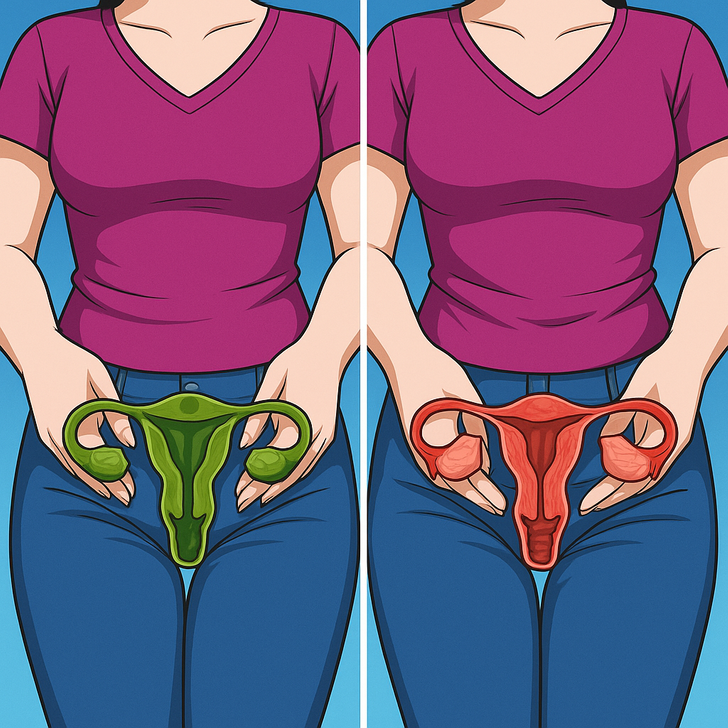
Gluten intolerance can mess with your hormones, leading to issues like irregular periods, mood swings, sleep troubles, and sudden weight changes.
These hormone-related symptoms often show up more during big life changes — like puberty, pregnancy, or menopause — and are especially common in women. This suggests that gluten may affect hormonal health differently depending on gender.
For individuals with celiac disease or gluten sensitivity, consuming gluten can trigger widespread inflammation, including in the bladder. This inflammation may contribute to overactive bladder symptoms, leading to a sudden and frequent urge to urinate. Those with interstitial cystitis (IC) or a tendency toward bladder discomfort may experience heightened irritation, potentially resulting in significant bladder pain.
Since gluten is a common part of many diets, its effects on bladder health may go unnoticed. By the time symptoms appear, inflammation may already be present, making it difficult to pinpoint gluten as a trigger.
Eating gluten can increase inflammation and make the gut lining more “leaky,” which may affect the brain and mood.
This can lead to symptoms like trouble focusing, low energy, anxiety, depression, poor sleep, and that foggy-headed feeling known as “brain fog.”
People with gluten intolerance also tend to get more migraines than others. While headaches can happen for lots of reasons, many people with gluten sensitivity notice they get them after eating foods with gluten — hinting at a strong connection.
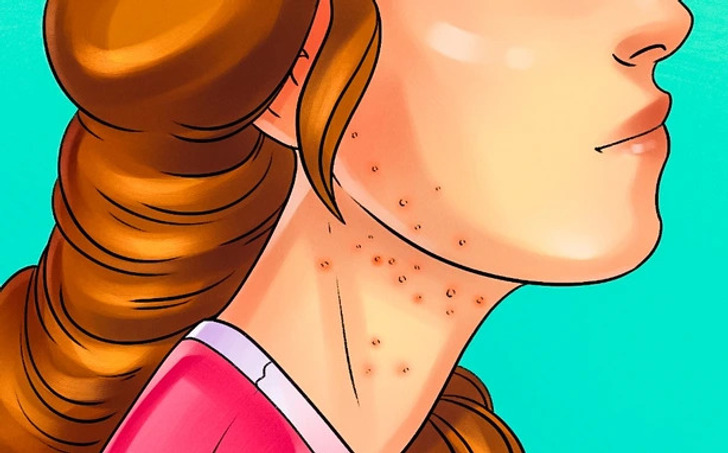
Gluten sensitivity is a long-term condition that affects people who are genetically more likely to react to gluten.
It’s believed to involve the immune system and can show up in many ways — not just in the digestive system but also on the skin and in other parts of the body, like the brain, hormones, and blood.
One common type of gluten intolerance is celiac disease (CD), which can cause a wide range of symptoms, including skin problems. Interestingly, people with psoriasis — a separate skin condition — often see their symptoms improve when they follow a gluten-free diet.

This study found that following a gluten-free diet can help reduce ADHD symptoms, suggesting that untreated celiac disease might raise the risk of developing mental and behavioral issues like ADHD.
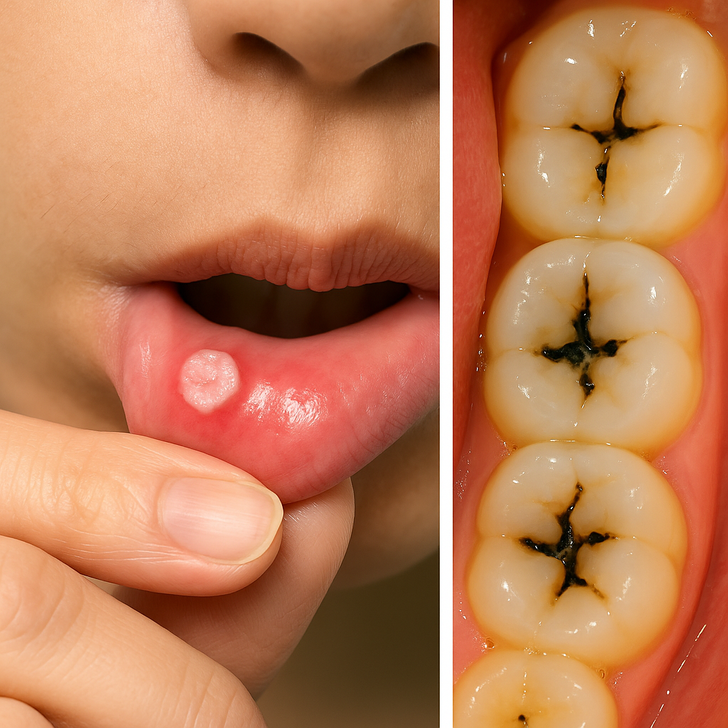
Gluten intolerance can make it harder for your body to absorb important nutrients — like calcium — which plays a big role in keeping your teeth and mouth healthy.
When calcium levels are low, it can lead to problems like sensitive teeth, more cavities, tooth decay, and frequent mouth ulcers. If you’re dealing with these issues even though you take good care of your teeth, gluten could be part of the problem. It might be time to take a closer look at your diet and consider whether gluten sensitivity could be affecting your oral health.

Iron-deficiency anemia is common in people with celiac disease because their bodies have trouble absorbing iron properly.
When someone with celiac disease eats gluten, it triggers an immune reaction that harms the lining of the small intestine. This damage makes it harder for the body to take in important nutrients like iron from food, which can lead to anemia over time.
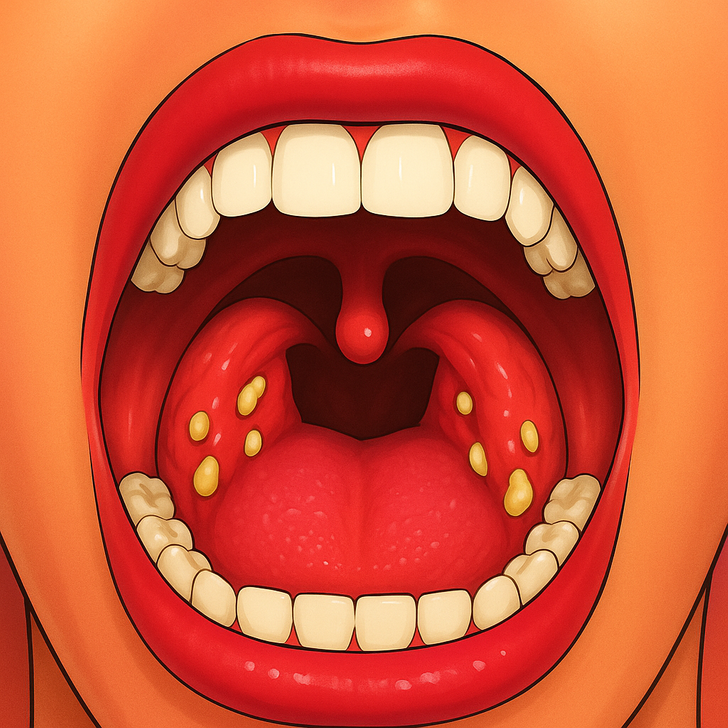
While research is still limited, doctors have noticed a possible link between gluten sensitivity and tonsil stones.
Tonsil stones—small, smelly lumps made of bacteria and debris—seem to show up more often in people with gluten intolerance. Interestingly, many of these individuals say their tonsil stones go away or improve a lot once they switch to a gluten-free diet. This suggests that gluten might play a role in causing them, though more research is needed to fully understand the connection.

Gluten sensitivity can sometimes lead to hair loss, especially in people with celiac disease.
This happens because gluten can damage the small intestine, making it harder for the body to absorb important nutrients like iron, zinc, and biotin — all of which are key for healthy hair growth. When these nutrients are low, it can cause hair to thin or fall out.
In some cases, the body’s immune response to gluten may even attack the hair follicles directly, leading to patchy hair loss known as alopecia areata.
The good news? Many people see their hair health improve after switching to a gluten-free diet.
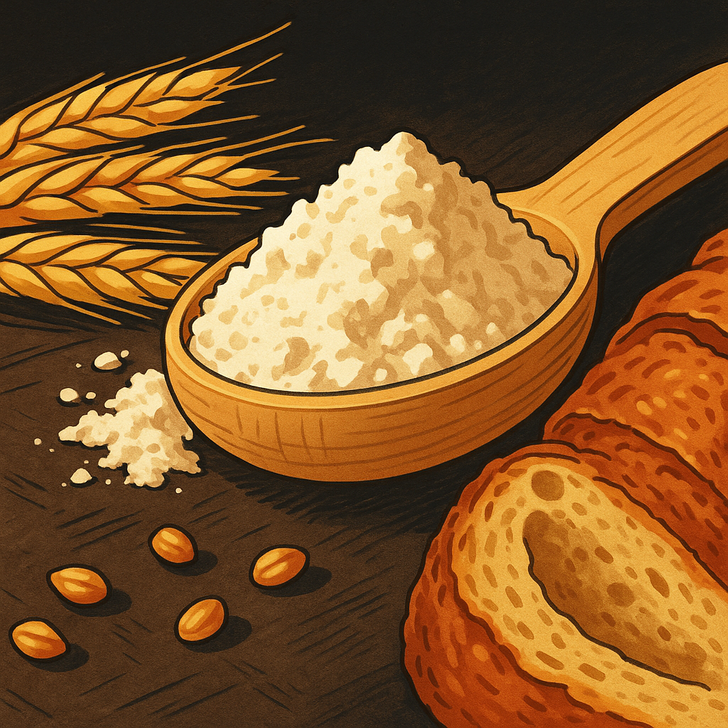
1. Get Tested: Visit your doctor for a blood test to check for antibodies typically found in the blood of individuals with Celiac disease. To ensure accurate results, it is important to include gluten in your diet before the test.
2. Remove Gluten from Your Diet: Avoid foods containing gluten, such as:
Always read product labels carefully, and opt for foods marked as “gluten-free” when possible.
Explore more powerful tips and articles on how to boost your health, build better habits, and feel your best every day.
10 Daily Habits That Can Instantly Upgrade Your Life Quality
5 Ways Your Body Might Be Telling You That You Have Colon Cancer











